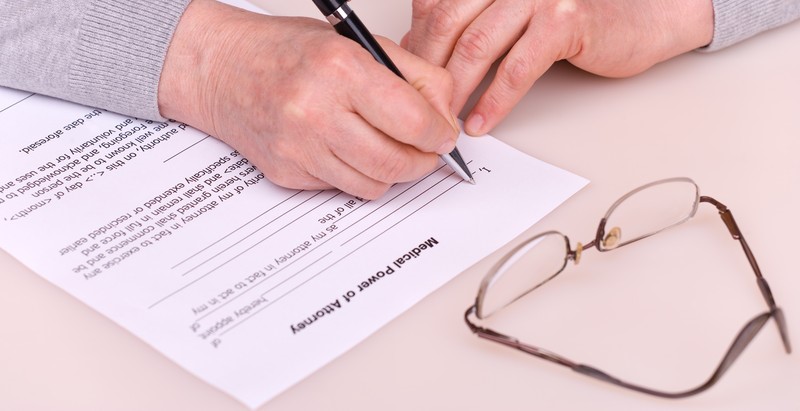Durable POA or Medical POA: Which One Do You Need?
A power of attorney form is a legal document that gives someone specific decision-making or acting power on your behalf. There are many types of POA forms, including medical power of attorney and durable power of attorney.
What Is a Durable Power of Attorney?
A durable power of attorney refers to a POA document that is designed to provide someone with the legal right to act on your behalf if you are incapacitated and unable to do so on your own. The types of actions you delegate to this person are defined by the POA. You might provide unlimited authority via a general power of attorney, for example, or delegate limited authority over certain financial matters and decisions via a special power of attorney.
In Arizona, it’s critical that a POA document includes specific language that makes it durable. This includes language that indicates the POA form should take effect if you are ever incapacitated, regardless of how much time occurs between the creation and execution of the form and the incapacitation. Without this language, the POA form is not effective after incapacitation.
Benefits of a Durable POA
A durable power of attorney can provide you with some peace of mind about the future, as you know you have taken steps to ensure someone you trust will make decisions on your behalf if you can’t. Because you decide who your POA is and what power they have, you can maintain some control over your life even when you can’t make decisions or take action for yourself. A comprehensive power of attorney also ensures that someone can handle essential tasks on your behalf, such as paying bills, to ensure your affairs are handled.
When Might You Need a Durable POA?
A durable power of attorney is typically meant to go into effect if you are incapacitated by injury or illness. However, it might also go into effect if you are unable to make decisions because you are undergoing a lengthy surgery. However, you obviously can’t wait until you might need a durable POA to create it. A POA is like insurance—you should create it when you don’t need it so that you have peace of mind in the future.
What Is a Medical Power of Attorney?
A medical power of attorney is a specific type of POA that appoints someone to make healthcare decisions on your behalf. You can have a financial POA or other specialty POA that appoints someone to handle certain tasks and decisions on your behalf and a separate POA that appoints a different person to make medical decisions on your behalf if you are incapacitated.
Benefits of a Medical Power of Attorney
When you create a medical power of attorney, you can name any competent adult as your healthcare proxy. Without a POA, healthcare professionals will turn to the next of kin to make such decisions, typically in the following order: a spouse, an adult child, a parent, a domestic partner, or a sibling. If healthcare providers don’t have access to next of kin—and in some cases, even if they do—without a POA, attending physicians and hospital ethics boards may take it upon themselves to make decisions about your care. Because of this, the benefits of a medical POA include ensuring your wishes are known and the ability to name someone you trust to follow through with those wishes.
Another benefit of a medical POA is that you can potentially take a burden off of someone who may not be able to handle it during a crisis. Many people do want those closest to them, such as a spouse, to make decisions in these matters. However, if you know your spouse would be emotionally unable to make the decision you want in a situation that might involve life-saving measures, you might use a POA form to select someone who you think would be better able to enforce your wishes.
When Might You Need a Medical Power of Attorney?
As with any type of durable power of attorney, you can’t wait until you need one to create a medical power of attorney. It’s important to be proactive and plan ahead, and it’s never too early to create a medical power of attorney.
Typically, once you create such a POA form, it is legally binding until it ends. You can revoke your durable POA form at any time, and you can also create a new POA form if you change your mind or want to designate someone else as your agent. It’s also important to note that even a durable POA ends if there is no available agent. If, for example, you only name one agent and that person passes away, the POA no longer has any impact. To avoid this issue, you might want to consider naming a successor agent in the POA.
Talk to Estate Lawyers About POAs and Other Needs
Power of attorney forms help protect your interests in times when you are not present or are unable to protect them yourself. To learn how POA forms work within a comprehensive estate plan, talk to the estate attorneys at AVID Esq. Group, LLC, by calling 480-467-5636.


 Call Us Now
Call Us Now Email Us Now
Email Us Now





